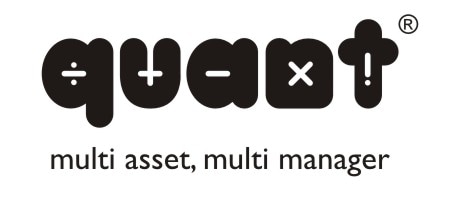Scheme type
AMC
Risk appetite
Rating
Returns

"SBI PSU Fund - Regular Plan -Growth"
Min. investment
Rs. 500.0
5 Year Returns
28.74%

"DSP World Gold Mining Overseas Equity Omni Fof - Regular Plan - Growth"
Min. investment
Rs. 100.0
5 Year Returns
28.65%

"ICICI Prudential Infrastructure Fund - Growth"
Min. investment
Rs. 100.0
5 Year Returns
28.24%

"ICICI Prudential Bharat 22 Fof - Cumulative Option"
Min. investment
Rs. 1000.0
5 Year Returns
28.13%

"Aditya Birla Sun Life PSU Equity Fund-Regular Plan-Growth"
Min. investment
Rs. 100.0
5 Year Returns
27.89%

"Invesco India PSU Equity Fund - Growth"
Min. investment
Rs. 500.0
5 Year Returns
26.84%

"HDFC Infrastructure Fund - Growth Plan"
Min. investment
Rs. 100.0
5 Year Returns
25.68%

"Quant Small Cap Fund - Growth - Regular Plan"
Min. investment
Rs. 1000.0
5 Year Returns
25.65%

"ICICI Prudential India Opportunities Fund - Cumulative Option"
Min. investment
Rs. 100.0
5 Year Returns
25.38%

"Motilal Oswal Midcap Fund-Regular Plan-Growth Option"
Min. investment
Rs. 500.0
5 Year Returns
24.92%

"ICICI Prudential Commodities Fund - Growth Option"
Min. investment
Rs. 100.0
5 Year Returns
24.84%

"Nippon India Small Cap Fund - Growth Plan - Growth Option"
Min. investment
Rs. 100.0
5 Year Returns
24.74%







































Frequently Asked Questions
What are equity funds in mutual fund?
Equity funds are a type of mutual fund that invests in the shares of various companies trading on the stock market. The companies are selected based on the investment objective of the equity fund scheme. These schemes aim for high capital appreciation for long term wealth creation and take proportional risks to achieve their goal.
Can I do SIP in equity?
Yes, SIP (Systematic Investment Plan) in equity funds allows investors to regularly invest fixed amounts, helping in rupee cost averaging and disciplined investing.
Which equity SIP is best?
The best equity SIP depends on individual investment goals, risk tolerance, and financial objectives; consulting a financial advisor can help determine the most suitable option.
Why choose equity funds?
Equity funds offer growth potential, diversification, and professional management, making them a compelling investment choice.
Is equity mutual fund safe?
Equity Mutual Funds carry varying levels of risk, depending on the portfolio's composition and market volatility. They can be safer than direct stock investments due to professional management and diversification across various sectors and industries. However, equity funds can still be affected by market fluctuations, making them more suited for investors with a higher risk tolerance.
Can I withdraw equity mutual funds?
Yes, investors can redeem their units in an equity mutual fund at any time. However, the timing of the withdrawal can impact the returns due to market conditions and potential capital gains tax liabilities. Investors should consider the fund's performance, tax implications, and their financial goals when making withdrawal decisions.
What is the cut off for equity funds?
The cut-off time for equity funds refers to the deadline by which investors must place transactions to be processed on the same day. In India, the cut-off time for buying or redeeming units in an equity mutual fund is generally 3:00 PM, with transactions placed after this time processed the next business day.
Is equity mutual fund good for the long term?
Equity Mutual Funds are generally considered good for long-term investments, as they allow time to navigate market cycles and potentially provide significant capital appreciation. The diversified nature of these funds also helps balance risk and returns over an extended period, making them suitable for investors seeking to build wealth gradually.
What does 20% equity fund mean?
A 20% equity fund refers to a mutual fund that allocates 20% of its portfolio to stocks or equities. The remaining 80% may be invested in other asset classes, such as bonds or cash equivalents, providing a balanced approach to risk and return. This type of fund caters to conservative investors seeking steady returns.
What does 80% equity fund mean?
An 80% equity fund indicates that 80% of its portfolio is invested in stocks or equities, with the remaining 20% allocated to other assets. This fund aims for higher capital appreciation and caters to more aggressive investors, balancing potential returns with risk management through diversification across sectors and industries.
What is a 100% equity fund?
A 100% equity fund invests its entire portfolio in stocks or equities. This type of fund aims for maximum capital appreciation, catering to aggressive investors willing to take on higher risk for potential gains. The fund's performance directly depends on the underlying stocks' performance, making it more volatile than diversified funds.
What is the difference between equity and mutual funds?
Equity refers to ownership shares in a company, while a mutual fund is an investment vehicle that pools money from multiple investors to invest in various assets, including stocks, bonds, and other securities. An Equity Mutual Fund primarily invests in stocks, offering diversified exposure to equities managed by professional fund managers.
Which is better, equity or balanced fund?
The choice between equity and balanced funds depends on an investor's goals and risk tolerance. Equity funds offer higher potential returns, catering to aggressive investors. Balanced funds provide a mix of stocks and bonds, offering a balanced risk-return profile, making them suitable for conservative or moderate investors seeking steady returns.
Which equity fund gives the highest return?
The return of an equity fund varies depending on its portfolio composition and market conditions. Growth-oriented funds, sector-specific funds, or thematic funds in high-performing sectors can offer substantial returns. Investors should compare historical performance, benchmark indices, and fund objectives to find a high-return equity fund suited to their goals.
What are equity funds in mutual fund?
Equity funds are a type of mutual fund that primarily invests in shares of companies. These funds aim to generate higher returns by capitalising on the growth potential of the stock market. The value of these funds fluctuates with market performance, making them suitable for investors with a higher risk tolerance seeking long-term capital appreciation.
Can I do SIP in equity?
Yes, you can invest in equity funds through a Systematic Investment Plan (SIP). SIP allows you to invest a fixed amount regularly, typically monthly, into equity funds. This approach helps in rupee cost averaging and reduces the impact of market volatility, making it a disciplined way to build wealth over time.
Which equity SIP is best?
The best equity SIP depends on your financial goals, risk appetite, and investment horizon. Generally, funds with a consistent performance track record, managed by experienced fund managers, and aligned with your risk profile are considered ideal. Researching funds with strong historical returns and low expense ratios can help you choose the right one.
Why choose equity funds?
Equity funds are chosen for their potential to deliver high returns over the long term. They offer exposure to the stock market, which historically outperforms other asset classes over time. These funds are ideal for investors seeking capital growth and willing to accept short-term volatility for the possibility of higher rewards.
How long do I need to remain invested in equity mutual funds?
To maximise returns and reduce the impact of market volatility, it’s recommended to stay invested in equity mutual funds for at least 5-7 years. Long-term investment allows you to benefit from the compounding effect and ride out short-term market fluctuations, potentially leading to higher capital appreciation.
What are the expected returns of equity mutual funds?
The expected returns of equity mutual funds vary based on market conditions, fund type, and investment horizon. Historically, equity funds have delivered annualised returns ranging from 10% to 15% over the long term. However, past performance is not indicative of future results, and returns can fluctuate.
Are equity mutual funds long-term investments?
Yes, equity mutual funds are typically considered long-term investments. They are designed to capitalise on the growth potential of the stock market over time. Staying invested for the long term helps mitigate short-term market volatility and allows the investor to benefit from compounding returns.
Will equity mutual funds give me dividends?
Some equity mutual funds offer dividends, while others focus on capital appreciation. Funds that offer dividends distribute a portion of their profits to investors. Dividend payouts depend on the performance of the underlying assets and the fund’s dividend policy. Investors can choose between dividend and growth options based on their income needs.
How can I calculate the returns of my SIP in an Equity Mutual Fund?
You can calculate the returns on your SIP in an equity mutual fund using the XIRR (Extended Internal Rate of Return) formula, commonly available in tools like Excel. Online SIP calculators are also available, where you can input your monthly investment, tenure, and expected rate of return to get an estimate.
Are equity mutual funds risky?
Yes, equity mutual funds are considered risky as they invest primarily in stocks, which are subject to market volatility. The returns are influenced by market fluctuations, and the risk level depends on the stock holdings and overall market conditions.
Can I invest in equity mutual funds with a low-risk appetite?
If you have a low-risk appetite, it is advisable to consider balanced or hybrid funds, which offer partial exposure to equities along with safer debt instruments. Equity mutual funds are generally suited for investors willing to take on higher risk for potentially higher returns.
Is it good to invest in equity funds?
Equity funds can be a good investment option for long-term financial goals, as they have the potential to generate higher returns compared to other asset classes. However, they come with higher risk, and it's essential to assess your risk tolerance and financial goals before investing.





